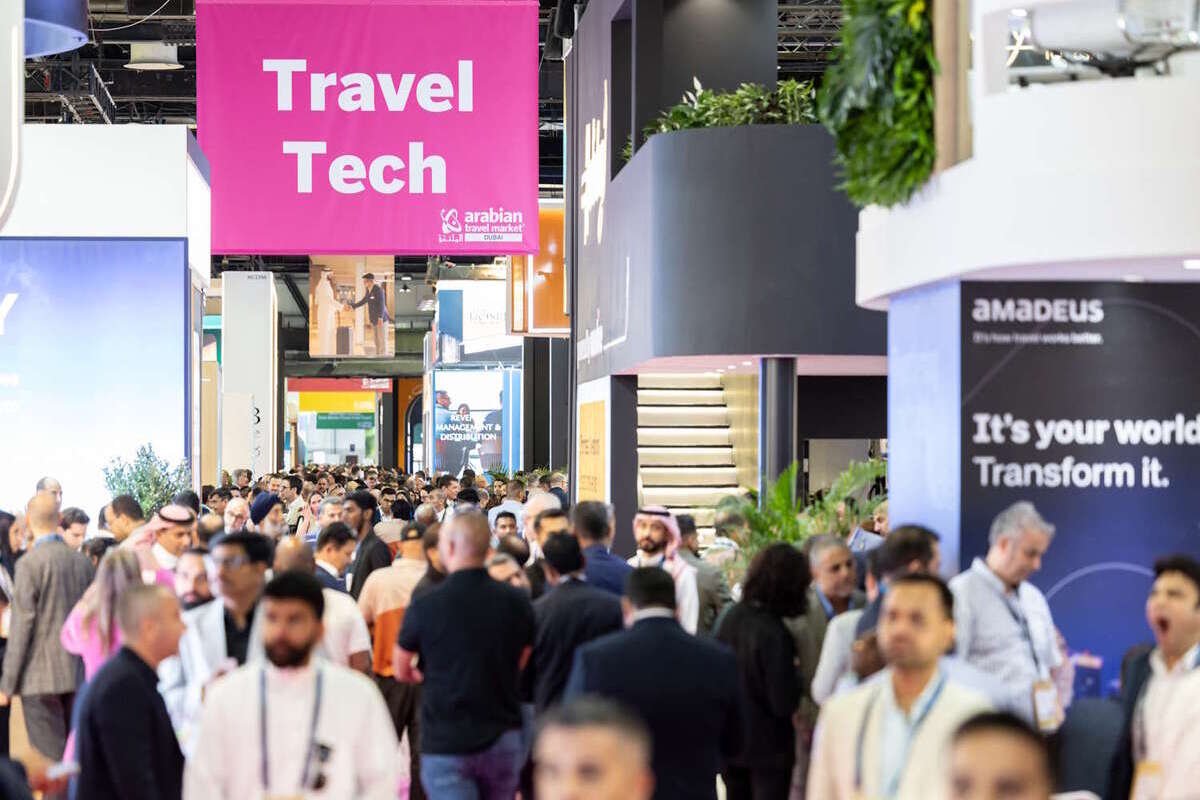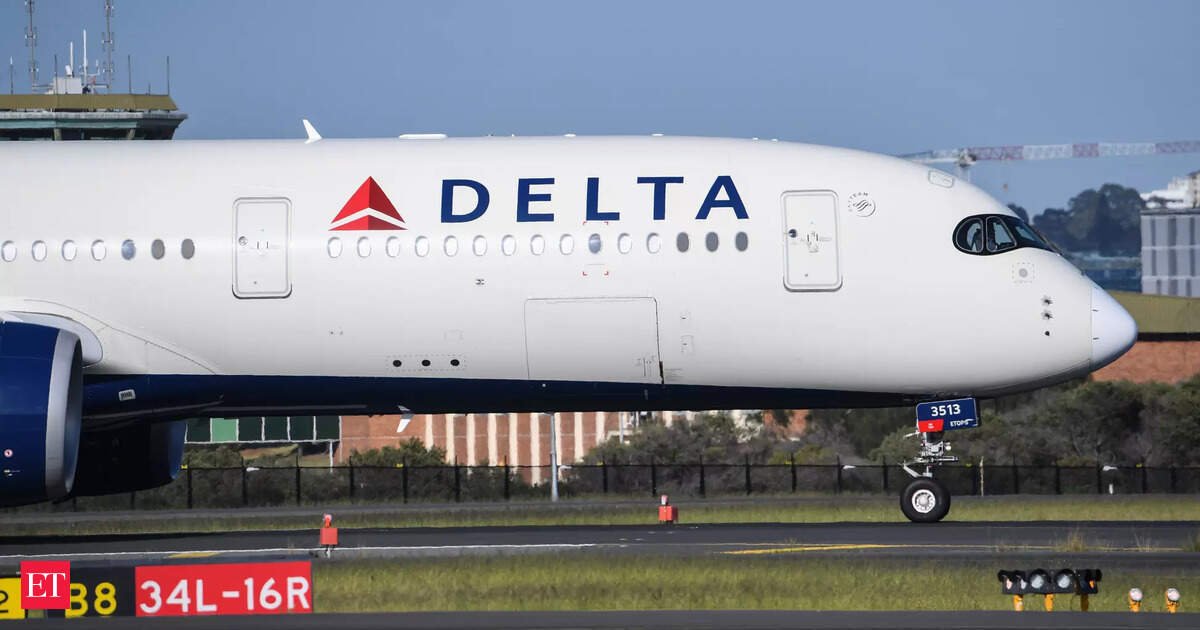AI in Travel
60 percent trust AI for planning, but human touch still matters

Human connection remains vital as AI tools reshape hospitality and customer service dynamics
Travel technology is reshaping the industry on a global scale, altering how travelers plan, book, and experience their journeys. A recent report by Tourism Economics on behalf of the Arabian Travel Market (ATM) reveals that 60 percent of travelers in the UAE trust Artificial Intelligence (AI) to manage every aspect of their trips, compared to 48 percent of travelers in other nations. This figure is anticipated to grow as technology becomes further integrated into consumer habits.
According to the report, AI is emerging as a vital resource for travelers planning trips to the Middle East. Nearly six in ten individuals have utilized AI for travel planning, with 21 percent employing it prior to their most recent journey. As AI adoption expands, it is expected to increasingly influence the delivery of personalized recommendations and booking experiences for tech-savvy travelers. The research also indicates that travel companies are leveraging AI to enhance customer service and drive economic impact.
Human connection in hospitality
In alignment with the digital transformation within travel and tourism, ATM 2025 provided a platform for experts from the technology, hospitality, and events sectors to discuss the implications for human connection as AI-powered tools, personalized service platforms, and data-driven designs become more commonplace.
During the event, Amy Read, VP of Innovation at Sabre Hospitality, stated: “It is important to recognize that human connection is at the core of hospitality. When we think about innovation within hospitality, we try to find ways that amplify those key moments, rather than replace them. We want to free up staff time so that they can engage in more meaningful interactions.”
Read emphasized the necessity for the industry to acknowledge that technology has altered guests’ expectations of hospitality providers, who now seek instant gratification and quick responses. This shift has led to the creation of innovative solutions such as SynXis Concierge AI, which employs generative AI to transform customer service for hoteliers by providing immediate, detailed, and accurate responses to specific inquiries. This reduces reliance on individual staff knowledge and ensures consistent, high-quality service around the clock.
Further examples include Miral’s AI concierge, Majd Al, which is utilized at attractions like Yas Bay Waterfront and Ferrari World Yas Island in Abu Dhabi. This service offers tailored suggestions based on individual preferences, assisting visitors in maximizing their experiences.
Panellists concurred that human-centric innovation begins with understanding consumer behaviour. Organizations such as Almosafer are adopting a co-creation approach, developing tools informed by customer pain points. Similarly, the travel agent platform Expedia TAAP designs technology based on insights from travel agents themselves, ensuring that its tools align with customer needs and usability.
AI’s impact on the MICE sector
Meanwhile, the rise of AI in the business events (MICE) sector is yielding significant gains in efficiency and insight. With the global meetings and events industry projected to reach $945 billion in 2025 and expected to surpass $2.3 trillion by 2032, the demand for scalable, intelligent tools has never been more pressing. Data-led personalization is now essential for driving attendee engagement and loyalty, with AI assisting in automating sourcing, translating content in real time, and generating tailored event experiences.
However, speakers collectively warned against an over-reliance on technology that compromises authenticity. As AI becomes central to personalizing travel experiences and enhancing operational efficiency, it does not replace human roles but rather reshapes them, encouraging organizations to realign talent towards more meaningful, guest-focused interactions. Ultimately, as event planners and travel providers strive to create experiences that resonate, the consensus remains that human connection must remain central to every digital advancement.
Danielle Curtis, exhibition director ME at Arabian Travel Market, remarked: “When it comes to travel and tourism innovations, the most effective technologies are those that amplify human interactions, improve efficiency, and respond directly to customer needs. The industry has a shared commitment to responsible innovation by placing people at the centre of every technology solution.”
Reflecting the travel industry’s complete convergence with technology and innovation, ATM Travel Tech was larger than ever at the 2025 edition, showcasing over 26 percent more products. ATM 2026, scheduled to take place from May 4-7, will build upon this focus on innovation, presenting the latest technologies that are shaping the future of travel.
Growing international travel interest
Moreover, the Allianz Partners Travel Index 2025 highlights that a significant portion of UAE residents plan to increase their international travel, valuing safety and insurance highly in their travel decisions. Allianz Partners, a global provider of travel insurance and assistance services operating in over 75 countries and supporting more than 72 million cases annually, underscores the evolving traveler priorities in the region. Their survey data, conducted in early 2025 and adjusted to reflect the UAE’s national demographics, provides actionable insights for enhancing travel innovations relevant to consumer needs.
On a broader scale, regional AI trends in the UAE extend beyond travel, encompassing autonomous mobility with Dubai’s aim for 25 percent driverless trips by 2030, AI-powered government services promoting efficiency, and generative AI applications in compliance and finance sectors. These trends illustrate a government-wide embrace of AI technologies that are simultaneously enhancing travel infrastructure and customer experiences. The Technology Innovation Institute (TII) in Abu Dhabi is developing homegrown large-language models such as Falcon 180B, adapted to local dialects, further supporting AI’s alignment with regional needs.
AI in Travel
Booking.com unveils its Global AI Sentiment Report

Booking.com has unveiled The Global AI Sentiment Report, a major new study exploring how consumers across 33 markets perceive and interact with artificial intelligence in everyday life and travel.
Drawing on responses from over 37,000 people, the report paints a complex picture: while excitement around AI is high, concerns about trust, transparency, and human oversight remain key barriers to broader adoption.
High interest, low trust
Globally, 91% of respondents to booking.com survey said they are excited about Artificial Intelligence. 89% expressed interest in using AI tools for future travel planning. However, only 6% reported fully trusting AI. 42% declared to always fact-check AI outputs, while 29% do so sometimes. Just 12% feel comfortable with AI making decisions without human input, and 10% are strongly opposed to it. Most consumers appear to value AI more as a support tool than a replacement for human judgment.
Booking.com report categorizes consumers into distinct groups: 36% are “AI Enthusiasts” intrigued by the technology’s potential, 13% are “AI Advocates” who champion its responsible adoption.
However, this excitement coexists also with significant caution. While 25% are “AI Detractors,” showing active resistance. Another 13% are “AI Cautious,” expressing reservations about its growing influence.
While 91% acknowledge at least one benefit—such as time-saving (51%), improved productivity (40%), or learning support (48%)—an equal percentage also reported at least one concern.
Regional gaps in trust and AI recognition
Regional variation reshapes Artificial Intelligence perception from one continent to another. Latin America (LATAM) leads in AI positivity, with 98% of respondents excited about the technology and 89% saying they understand how it works. Asia-Pacific (ASPAC) follows closely with 95% in excitement feeling and 82% being familiar with IA. ASPAC users have a widespread daily integration of AI, especially in transport and education.
Globally, while 77% have at least some trust in AI, nearly a quarter (23%) rarely or never trust information generated by it. It is particularly high in North America (NORAM) and Europe & the Middle East (EME). The two regions show higher distrust with 32% and 29% of respondents respectively feeling cautious at AI-generated information. Consumers here are highlighting a broader demand for transparency and reassurance as adoption grows.
In the travel sector, AI is already widely used. Two-thirds of respondents have relied on AI for trip planning, booking, or in-destination assistance. Travelers primarily use AI to research destinations (38%), find cultural experiences (37%), and get restaurant tips (36%). Once on the ground, translation tools (45%) and navigation help (40%) are the most common applications. Photo editing tops AI usage post-trip.
The report also highlights growing demand for ethical AI. A majority of travelers (71%) value tools that help avoid crowds, and 60% want Artificial Intelligence to prioritize experiences that support local communities.
“Generative AI represents one of the most significant technological shifts of our era. It fundamentally reshapes how consumers engage with the world around them, ” says James Waters, Chief Business Officer at Booking.com. “But beyond innovation, our focus must be on transparency, trust, and responsibility as we move into the next chapter of travel technology.”
Related News Stories: Amex GBT integrates hotel marketplace with Concur Travel platform AI takes the lead in travel booking – but human touch remains the … Booking.com to cut jobs With Alipay+ Voyager, Ant International provides an AI travel … Global Travel Tech Leader HotelPlanner Partners with UPA Asia … Smarter Reservations: AI, Customer Experience, and Dylan … Hostaway launches full suite of AI tools HotelPlanner partners with The Lawn Tennis Association B2B booking Teldar Travel enters the U.S. and Middle East markets HotelPlanner: How AI and human booking agents can thrive together
AI in Travel
Air Travel Pricing: Delta’s AI fare strategy: Cheaper flights or high-tech price hikes?

How it works: AI-powered dynamic pricing
Delta’s AI system, developed by Israeli startup Fetcherr, analyzes a wide range of data in real time such as demand trends, market fluctuations, booking pace, and competitor pricing. Rather than using static fare charts, the AI suggests optimal prices that can adapt instantly to changing conditions.
Delta President Glen Hauenstein called it a “reengineering” of pricing science and noted early trials have led to “amazingly favorable unit revenues,” a metric used to gauge profitability per seat.
Concerns over fairness and transparency
Despite Delta’s optimism, the move has sparked concern among lawmakers and consumer advocates. Senators Mark Warner, Richard Blumenthal, and Ruben Gallego sent a letter to the airline questioning whether AI driven fare decisions could lead to “surveillance pricing.” Their concern: that AI might use personal data to charge individuals based on their perceived willingness to pay.
Delta responds: No personal data used
Delta has firmly denied using personal information to set prices. In a statement, the airline clarified that it does not use browsing history, financial details, or customer profiles. Instead, pricing is based on anonymized market data and traditional travel factors like origin, destination, date, seat class, and refundability. “All customers have access to the same fares,” a Delta spokesperson emphasized.
A broader trend in air travel?
Industry analysts suggest this is just the beginning. As airlines compete for profitability in a volatile market, many are likely to adopt AI tools to gain an edge. While dynamic pricing isn’t new, the speed and granularity offered by AI raises concerns about fairness and transparency.Consumer rights groups are keeping a close eye on the issue. A new bill in Congress, called the Stop AI Price Gouging and Wage Fixing Act, seeks to ban the use of consumer profiling in pricing and could impact how AI tools like these are used in the future.
FAQs
Q1. What is Delta’s AI pricing system?
A1. Delta is using artificial intelligence to set ticket prices based on real-time market data. The system is designed to optimize fares depending on demand, competition, and booking trends.
Q2. How could AI-based pricing affect travelers?
A2. Travelers may see more frequent changes in fares based on demand and timing. It might get harder to know when you’re getting the best deal.
AI in Travel
New York City Launches New AI Travel Guide

Travelers heading to New York City now have one more tool in their arsenal to help them experience the city, an AI chat platform called Libby, short for Liberty.
The new AI tool, available on New York City Tourism + Conventions’ website on the lower right-hand side, along with the city’s official Instagram and WhatsApp, is available in 60 different languages and will provide quick answers to any travel or tourism-related questions about the city.
The responses travelers receive are personalized with extensive data from the tourism organization.
“We’re pleased to unveil Libby, the official AI chat platform for exploring New York City,” says Julie Coker, president and CEO of New York City Tourism + Conventions. “As we gear up for America 250 celebrations and the 2026 FIFA World Cup, we’re proud to offer this free, innovative tool in 60 languages that empowers global visitors to craft unique itineraries and discover unforgettable experiences across all five boroughs.”
New York City will also promote Libby at 4,000+ LinkNYC screens at transit stops. Libby was created in partnership with GuideGeek AI technology from Matador Network.
For the latest travel news, updates and deals, subscribe to the daily TravelPulse newsletter.
Topics From This Article to Explore
-

 Brand Stories2 weeks ago
Brand Stories2 weeks agoBloom Hotels: A Modern Vision of Hospitality Redefining Travel
-

 Brand Stories2 weeks ago
Brand Stories2 weeks agoCheQin.ai sets a new standard for hotel booking with its AI capabilities: empowering travellers to bargain, choose the best, and book with clarity.
-

 Destinations & Things To Do2 weeks ago
Destinations & Things To Do2 weeks agoUntouched Destinations: Stunning Hidden Gems You Must Visit
-

 Destinations & Things To Do2 weeks ago
Destinations & Things To Do2 weeks agoThis Hidden Beach in India Glows at Night-But Only in One Secret Season
-

 AI in Travel2 weeks ago
AI in Travel2 weeks agoAI Travel Revolution: Must-Have Guide to the Best Experience
-

 Brand Stories1 month ago
Brand Stories1 month agoVoice AI Startup ElevenLabs Plans to Add Hubs Around the World
-

 Brand Stories4 weeks ago
Brand Stories4 weeks agoHow Elon Musk’s rogue Grok chatbot became a cautionary AI tale
-

 Brand Stories2 weeks ago
Brand Stories2 weeks agoContactless Hospitality: Why Remote Management Technology Is Key to Seamless Guest Experiences
-

 Asia Travel Pulse1 month ago
Asia Travel Pulse1 month agoLooking For Adventure In Asia? Here Are 7 Epic Destinations You Need To Experience At Least Once – Zee News
-

 AI in Travel1 month ago
AI in Travel1 month ago‘Will AI take my job?’ A trip to a Beijing fortune-telling bar to see what lies ahead | China









You must be logged in to post a comment Login